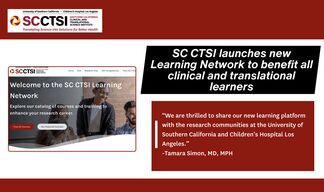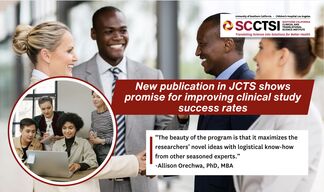Clinical Trials in Special Populations is Topic of Latest Regulatory Science Bootcamp
The seminar explored the unique regulatory, ethical and scientific concerns and safeguards required for research with newborns, geriatric, and institutionalized or vulnerable populations, and others.
Rigorous FDA regulations, IRB guidelines, and other oversight exist to ensure that clinical research never comes at the expense of the safety and rights of its participants—even those participants who fully understand and enthusiastically embrace their contribution.
But some research involves populations who may not be able to give true consent—such as babies, the mentally ill, prisoners in the criminal justice system, and others. And some research involves populations where risk of harm is of particular concern, such as pregnant women, and children.
These so-called special populations are protected by specific regulations and guidelines, said Eunjoo Pacifici, PharmD, PhD, Associate Director of Graduate Programs and Assistant Professor of Clinical Pharmacy at the International Center for Regulatory Science, based at the USC School of Pharmacy.
Special populations was the topic of the latest in a series of regulatory science bootcamp courses, held in March at the USC Health Science Campus.
"The rigorous regulatory and other kinds of oversight aren't meant to discourage research in special populations," said Pacifici. "Instead, these safety and ethical guidelines should give researchers the confidence to design and enable needed research involving these participants."
Clinical researchers can hardly afford to avoid special populations. Consider pediatric populations, where drug research with pediatric populations significantly lags adults. Children make up 40 percent of the population, but only 10 percent of drugs on the market are approved for pediatric uses, pointed out bootcamp presenter Nancy Pire-Smerkanich, DRSc, Assistant Professor of Clinical Pharmacy at the International Center for Regulatory Science.
Topics covered in the recent bootcamp event included the science of pharmacometrics, the mathematical modeling of drug dosage, concentration and biological data that's crucial to extrapolate efficacy and safety data across different populations.
"The FDA and other regulatory agencies in the world expect pharmacometric approach now to the design of clinical studies," said bootcamp presenter Michael Neely, MD, Associate Professor of Pediatrics, at Keck School of Medicine and a principal investigator at Children's Hospital Los Angeles, where he is Director of the Laboratory of Applied Pharmacokinetics and Bioinformatics.
Larisa Yedigarova, MD, PhD, MSRS, US Medical Director, Cardiovascular at Amgen, discussed regulatory and other considerations for pregnant women, a growing special population category.
"Pregnancy itself is not a disease, but in modern days people often postpone pregnancy to later ages, and with age come more health concerns," said Yedigarova, who formerly held faculty and research appointments at the Division of Maternal-Fetal Medicine, in the Department of Obstetrics and Gynecology at Keck School of Medicine.
Compounded by concerns such as obesity, diabetes, and high blood pressure, complicated pregnancies have been on the rise, Yedigarova said, and with them the need for clinical research with this population.
Bootcamp lecturer Seth Kurzban, PhD, Clinical Associate Professor at the USC School of Social Work, explored the ethical and other considerations surrounding research involving research participants who are incarcerated within the criminal justice system.
"Incarcerated people are considered a vulnerable population because they might be compelled to be in a research study, so the Department of Health and Human Services has regulations to monitor ethical research with that population," said Kurzban. "This helps ensure that prisoners aren't involuntary subjects but are consenting participants in the research process, which has created shift in how we recruit and go about research design."
The day-long regulatory science bootcamps bring in lecturers from the USC/CHLA research community—or beyond—to explore a different aspect of regulatory science and clinical research through lecture presentations and workshop exercises. The bootcamps, (co-sponsored by the USC International Center for Regulatory Science, the Southern California Clinical and Translational Science Institute, and the Greater Los Angeles CTSA Consortium) continue to be sold-out affairs, attracting members of the research community from USC/CHLA, the Southern California region, and beyond.
Keep an eye out for the next bootcamp, to be announced by the USC International Center for Regulatory Science.



